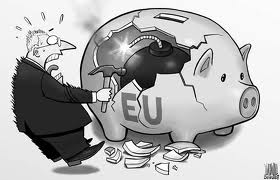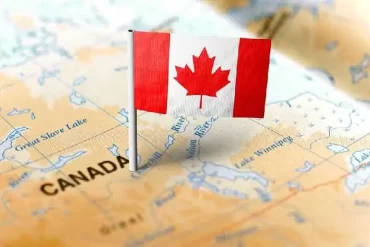 In the last two years Europe and sovereign debt crisis have almost become synonymous. The world is closely watching the new developments in one of the most powerful economies of the planet. If things go amiss in Europe, everyone knows it will bring along severe ripple effects across the globe. Talking about the European sovereign debt crisis almost always involves discussing Germany because it plays the role of the savior. Germany, the fourth largest economy of the world after USA, China, and Japan, is easily the EU’s largest economy and has its finances in order. It is also less troubled by the global financial downturn compared to other West-European states because Germany makes its money by selling high quality but relatively cheap industrial products all over the world, particularly to China and other booming countries in Asia. An important reason lies in the fact that Germany has had a very sober and diligent economic policy of price stability where loans were kept artificially low in order for products to be cheap (together with a policy of high research and development investments). Greece and many other Southern and Western EU member states did allow wages to rise, which in turn allowed citizens of these countries to lead luxurious lives, fueling a financial bubble which had to burst sooner or later. Now after many years, Germany is finally reaping the benefits from its sober policies, seeing wage levels rise and housing prices jump for the first time in decades. Why then should the German taxpayer again restrain himself and bankroll the (self-inflicted) debt crisis of Southern EU member states? And why would Germany come to the rescue? What would be the advantage? Imagine Bangladesh buying of debt from Nepal or any other (small) neighbor. One can highly question whether the average German citizen will receive any direct or indirect benefit from saving Greece or Italy from a financial catastrophe. Without the Euro, Germany will still be (equally) strong.
In the last two years Europe and sovereign debt crisis have almost become synonymous. The world is closely watching the new developments in one of the most powerful economies of the planet. If things go amiss in Europe, everyone knows it will bring along severe ripple effects across the globe. Talking about the European sovereign debt crisis almost always involves discussing Germany because it plays the role of the savior. Germany, the fourth largest economy of the world after USA, China, and Japan, is easily the EU’s largest economy and has its finances in order. It is also less troubled by the global financial downturn compared to other West-European states because Germany makes its money by selling high quality but relatively cheap industrial products all over the world, particularly to China and other booming countries in Asia. An important reason lies in the fact that Germany has had a very sober and diligent economic policy of price stability where loans were kept artificially low in order for products to be cheap (together with a policy of high research and development investments). Greece and many other Southern and Western EU member states did allow wages to rise, which in turn allowed citizens of these countries to lead luxurious lives, fueling a financial bubble which had to burst sooner or later. Now after many years, Germany is finally reaping the benefits from its sober policies, seeing wage levels rise and housing prices jump for the first time in decades. Why then should the German taxpayer again restrain himself and bankroll the (self-inflicted) debt crisis of Southern EU member states? And why would Germany come to the rescue? What would be the advantage? Imagine Bangladesh buying of debt from Nepal or any other (small) neighbor. One can highly question whether the average German citizen will receive any direct or indirect benefit from saving Greece or Italy from a financial catastrophe. Without the Euro, Germany will still be (equally) strong.
Why then is Angela Merkel, the chancellor of Germany, keen on saving Greece and the other Southern EU member states? The fact is that Germany has always been at the frontlines of the European project. If it was up to Germany, the European Union would be something like a Federal Europe where member states maintain their own culture, language, etc. but have delegated a lot of sovereignty to the Europe. Important functions of the nation state like fiscal, economic and budget policies would be drafted and enforced by European institutions.
Why does Germany want this? There are multiple answers to that question but the most important one is the so-called ‘table-cover and napkin’ predicament of Germany. It’s too small to follow and too large to dominate, as World War One and Two have proven. Also, Germany would never have been accepted back into the European market if it wasn’t for their commitment to the European project. Indeed, more than sixty years after WWII Germany has become one of the most popular countries in Europe. With its consistent non-aggressive foreign policy, fiscal responsibility and its Wirtschaftswunder the Germans have over the years won the hearts of many. Recently, the European Union received the Nobel Peace prize for keeping tensions at bay in the region which has for millennia been characterized by disputes and conflicts. Here the pacification of the ancient feud between Germany and France, which dates back to the 17th century, is a particularly special achievement which may be attributed to the European Union.
Another reason for Germany to be so enthusiastic about the European Union is simply because it is the biggest and strongest state in Europe and would therefore have the strongest say in the EU. And who wouldn’t want to lead the EU, which, if truly unified with common fiscal, juridical and political policies, has the potential to be the single most powerful ‘state’ of the world.
But further unification comes with a price for the Germans. Southern member states are saying ‘more common fiscal and political policies are fine, but first give us the funds to get out of this crisis, then, we will talk about these common policies’. Interestingly, France may at one point also need funds from Berlin since its economy is not as sturdy as the German one. The economy of France has a large focus on agriculture and services and France also did not adhere to the sober price-stability policies that their German counterparts did. So all these countries are now knocking on the German door asking for funds and are saying that they are willing to talk about increased unification later. The Germans have been there, done that. And they were not happy with the outcome the last time it happened.
Many countries did not like to see West and East Germany united because they feared the power of a united Germany. Perhaps now this is difficult to imagine but in those days the WWII and even WWI was still part of living memory and the former Allied Powers were very much on their toes and highly alert. Although it is contested, many experts believe that the Deutsche Mark, which had for decades dominated the monetary policies of (Western) Europe, and the prized symbol of the German Wirtschaftswunder, was used as a bargaining chip to sway the opposition to unification (it was sometimes also called the German A-bomb, meaning Germany did not have a nuclear weapon but they did have the DM, yielding a significant amount of power). France in particular demanded that Bonn (the then capital of West Germany) gave up its DM and would commit to a common single European currency. The then German chancellor Helmut Kohl agreed to these terms but had two preconditions: 1. the monetary union must be accompanied by a political union and 2. the European Central Bank must be based in Frankfurt and shaped after the German model; it must be independent and focused on price-stability. The French president Francois Mitterand reluctantly conceded to these demands. Yet, two decades later, the dossier on political union is still very thin. The Germans have learned their lesson and this time around want to see political union before taking further steps to financial integration.
The Euro going haywire is not very surprising because the financial European integration has always outpaced further political integration. There are simply very few tools that allow proper monitoring and enforcement of essential rules in order for the financial system to work. According to critics like former SPD Chancellor Gerhard Schröder the Euro has always been a ‘sickly premature baby’. In any case, if Europe decides to keep the Euro, it must also commit to further political integration. For the first time in decades it seems as if there is euro-fatigue among Germans, a worrying trend in itself because it have always been the Germans who were most enthusiastic about the European project. As it is, Germany still has no anti-EU party that has been successful in getting a significant amount of votes.
Without further European political integration it makes little sense for the Germans to invest heavily into the Euro, they fear that they will have to clean up the same mess next time in a not too distant future. Hence, Germans are quite reluctant to handover their checkbook just yet.
But there is another important reason for their reluctance. Over two decades ago, shortly after the demise of Soviet Union and the fall of the Iron Curtain, East and West Germany were re-unified. Back then, West Germany had developed fast in tandem with other West-European states and was fairly rich. On the other hand East Germany had a very poor economy at the time of reunification. Therefore, West Germany took up the burden of their Eastern compatriots after the Wall came down. Now, almost two decades later a strong and united Germany has emerged. Yet, understandably, West-Germans in particular, are tired of pulling the wagon of economic recovery for other nations. Furthermore, Greece and other southern European member states are nowhere as close to the current German taxpayers as compared with old situation where they had to pay for their former compatriots, who had the same language, culture and were in many cases even blood-related.
The EU debt crisis has been ongoing for a quite a while already, and the Western member states with Germany in the forefront have already bankrolled huge financial rescue efforts. In German newspapers we can read austerity measures are being followed through but that, at the same time, the core problems persist in the opening of markets, privatizations, cuts in bureaucracy and the fight against corruption.
A telling example is how the widely circulated newspaper Bild comments on the request by Athens to send another financial package in order to further implement austerity measures. “We Germans have shown solidarity. We kept on helping when the need was greatest. But it came to nothing. It’s a painful lesson. A country incapable of repaying its debts to its European partners simply has no place in the euro. If there really will be a second debt writedown, Greece must get out of the euro. No one can accuse us of not having tried everything!”
Angela Merkel will try her best to fend off tenders for funds and make it clear for as long as she can that financial integration must go together political integration. But in case where the other party won’t budge, Merkel will probably still give in and provide support, because after all, where would Germany be without the European Union?
Also read: UKRAINIAN TROOP CONCENTRATION NEAR TRANSNISTRIA: A NEW BATTLEGROUND IN EASTERN EUROPE?
The writer completed Post-Graduate in International Development from Lund University
First published in FAIR Magazine, Issue 4







